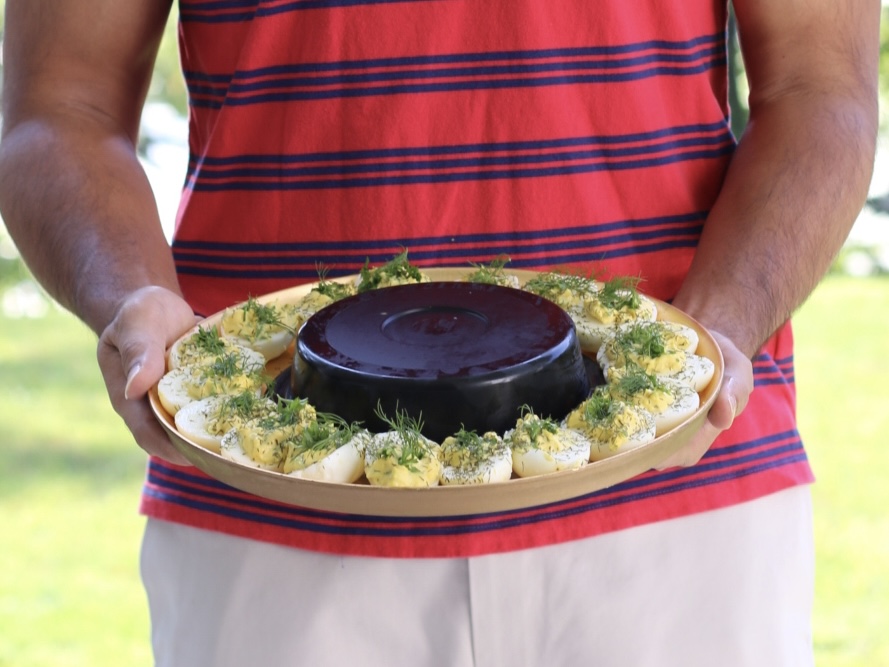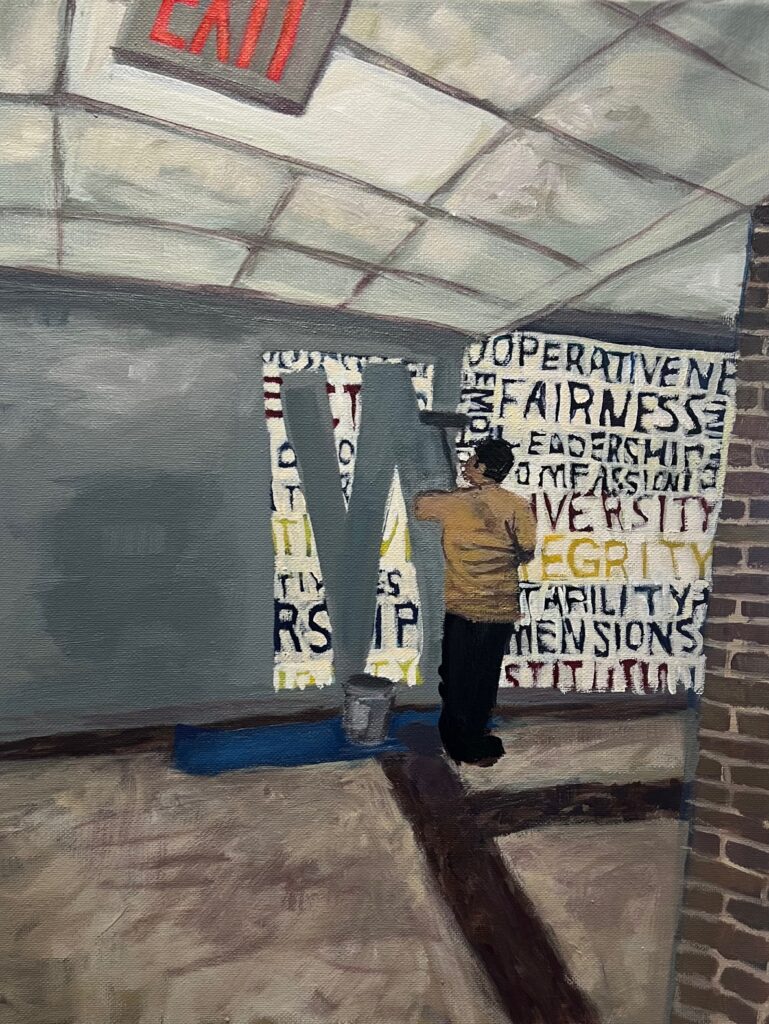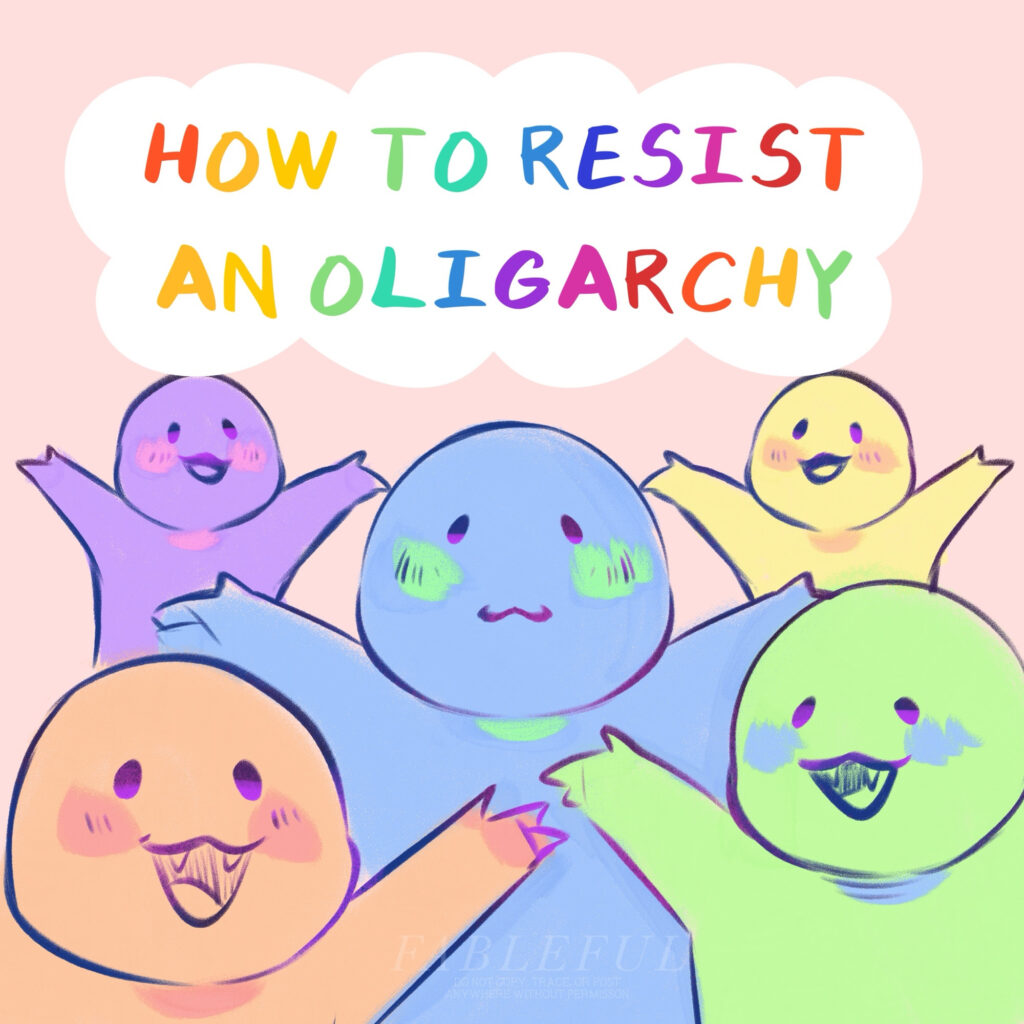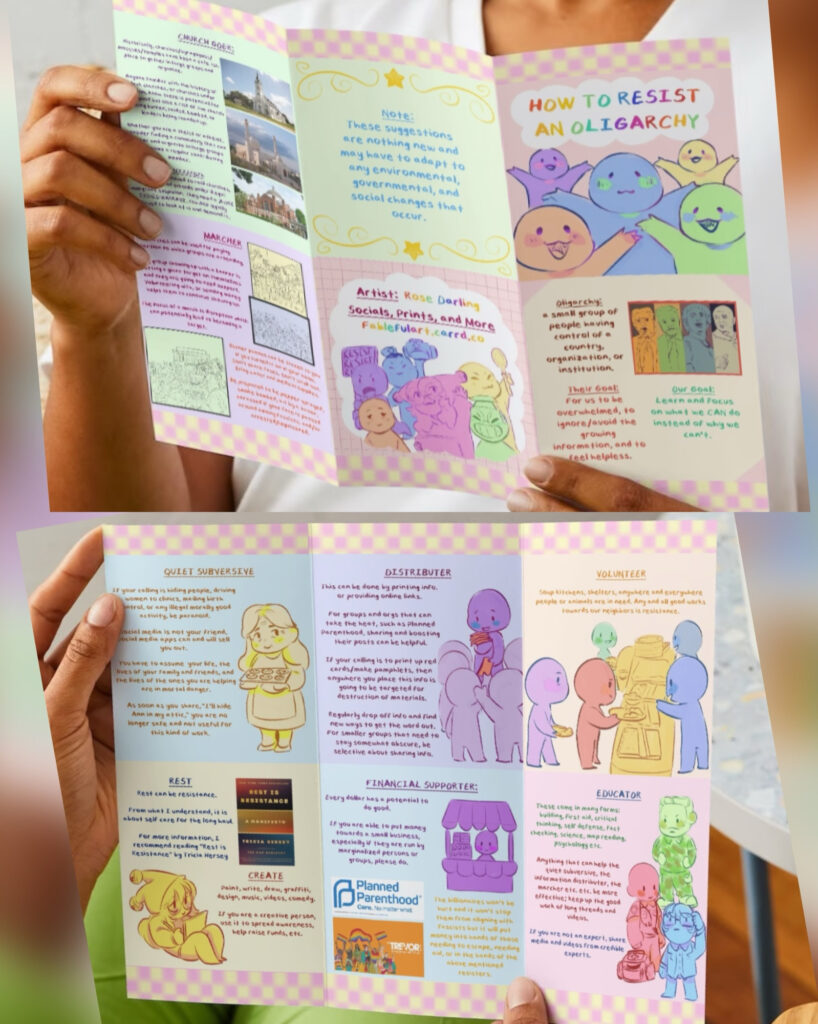What are we Bringing to the Revolution? (+ a fresh painting!)

Last night, I had a much-anticipated call with friends from my Spain painting retreat, during which I showed a recent painting with a bit more dystopian undertones than my usual practice.

The reference image was shared originally on the New York Times and it shows an employee at the FBI academy painting over a mural representing core values, such as Integrity, Fairness, Respect, Leadership, Diversity, Compassion, Cooperativeness, etc.
This image immediately resonated with me deeply, and I did not want it to get lost in the flurry of “flooding the zone” with “muzzle velocity”, to paraphrase Steve Bannon. They say “take a picture, it’ll last longer”–but I believe in this hyperspeed age of information and reporting, art makes things last longer than a photograph. So I painted it in acrylics.
Back to last night’s call–with an undertone of concern, my friend asked, “How did you feel painting it? Was it cathartic for you?”
I replied with an intense Yes. I’m big into the playlist as a part of the process, and throughout this work I was building a new playlist titled “Revolution.” I was vibeing, dancing, and feeling the weight and responsibility of bringing whatever I could to the revolution.
I told my friends: “You know, during his first term, I let myself go into despair.” This is true. I couldn’t believe neighbors, family, and friends could support someone so despicable. I took it personally and I thought less of those I had previously liked or love. I went on: “I just shut myself off from everything. I went offline, I didn’t even know about the women’s march until a week after it happened. I didn’t have any friends so it was easy. But this time, I’m mentally well. I know I can’t take it to the streets–I’ve got to pick my kids up from school. But I can paint, I can write, and I can bring my unique skills to the revolution.”
“I can’t take it to the streets, I’ve got to pick my kids up from school”
My friend thought that was notably funny. But what I’m getting at here is that everyone has a role to play in the revolution. During the George Floyd protests, I was initially struck with immense guilt. Six months prior, after reading Kiese Laymon’s Heavy and The Warmth of Other Suns, I did a deep dive into literature about the Black experience. I had information and personal connection to black culture from the way I grew up, but felt I was falling short in what I could do in the movement. Then I watched the film Selma.
There was a scene when Coretta Scott King was answering MLK Jr.’s calls late at night while the children were asleep, when it stuck me: Coretta Scott King was not in the streets. Does that make her any less valuable? Could MLK Jr. have had the same level of strength without the spiritual power of a loving partner to come home to? Is it not revolutionary to lovingly raise children to be creatively maladjusted in an unjust society?
Now, I know I’m no Coretta Scott. She played a role that was important, and there is a wide range of roles to play, as written by @deiloh and illustrated by @fablefulart.bluesky.social


This brochure can be printed out and shared freely, per the creator, through how to resist an oligarchy on canva
I no longer feel guilt for not being in the streets, or anger toward those who I perceive aren’t doing enough. I focus on the roles I’m willing and able to play, even if it’s a political halloween costume. I can head to a unified goal while remaining in my lane.
Do you need a break? From what?
WOOF. I need a break from this oligarchic crap, but it won’t relent soon and it will only get worse if ignored. So I will rest, I will rejoice, and then I will respond in all the ways within my limited power.
Beautiful. As a disabled person, it’s hard to get out on the streets as often as I’d like. But this is very empowering, as a fellow artist, that there is still work I can do. Thank you!